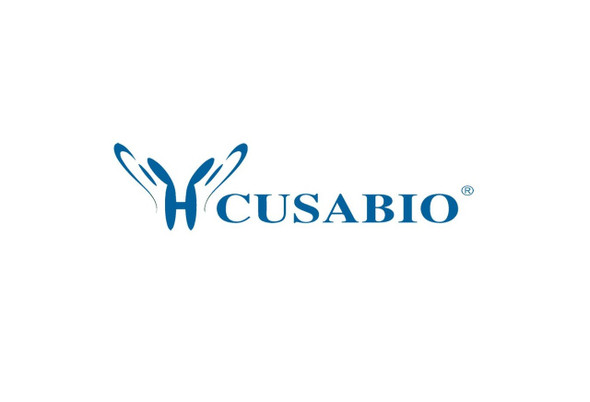Cusabio Virus & Bacteria Recombinants
Recombinant Human respiratory syncytial virus B Matrix M2-1 (M2-1) | CSB-EP518618HXK
- SKU:
- CSB-EP518618HXK
- Availability:
- 13 - 23 Working Days
Description
Recombinant Human respiratory syncytial virus B Matrix M2-1 (M2-1) | CSB-EP518618HXK | Cusabio
Alternative Name(s): Envelope-associated 22 kDa protein
Gene Names: M2-1
Research Areas: Cancer
Organism: Human respiratory syncytial virus B (strain B1)
AA Sequence: MSRRNPCKFEIRGHCLNGRRCHYSHNYFEWPPHALLVRQNFMLNKILKSMDKSIDTLSEISGAAELDRTEEYALGIVGVLESYIGSINNITKQSACVAMSKLLIEINSDDIKKLRDNEEPNSPKIRVYNTVISYIESNRKNNKQTIHLLKRLPADVLKKTIKNTLDIHKSIIISNPKESTVNDQNDQTKNNDITG
Source: E.coli
Tag Info: N-terminal 6xHis-tagged and C-terminal 6xHis-tagged
Expression Region: 1-195aa
Sequence Info: Full Length
MW: 25.5 kDa
Purity: Greater than 90% as determined by SDS-PAGE.
Relevance: Acts as a transcriptional elongation factor to prevent premature termination during transcription thus allowing complete synthesis of RSV mRNAs. Functions also as a processivity and antitermination factor to permit transit of the polymerase through intergenic regions to access promoter distal genes. Plays a role in the association of the matrix protein with the nucleocapsid, which initiates assembly and budding. Also, can activate NF-kappa-B through association with host RELA (By similarity).
Reference: "Respiratory syncytial virus (RSV) SH and G proteins are not essential for viral replication in vitro: clinical evaluation and molecular characterization of a cold-passaged, attenuated RSV subgroup B mutant." Karron R.A., Buonagurio D.A., Georgiu A.F., Whitehead S.S., Adamus J.E., Clements-Mann M.L., Harris D.O., Randolph V.B., Udem S.A., Murphy B.R., Sidhu M.S. Proc. Natl. Acad. Sci. U.S.A. 94:13961-13966(1997)
Storage: The shelf life is related to many factors, storage state, buffer ingredients, storage temperature and the stability of the protein itself. Generally, the shelf life of liquid form is 6 months at -20?/-80?. The shelf life of lyophilized form is 12 months at -20?/-80?.
Notes: Repeated freezing and thawing is not recommended. Store working aliquots at 4? for up to one week.
Function:
Involvement in disease:
Subcellular Location:
Protein Families:
Tissue Specificity:
Paythway:
Form: Liquid or Lyophilized powder
Buffer: If the delivery form is liquid, the default storage buffer is Tris/PBS-based buffer, 5%-50% glycerol. If the delivery form is lyophilized powder, the buffer before lyophilization is Tris/PBS-based buffer, 6% Trehalose, pH 8.0.
Reconstitution: We recommend that this vial be briefly centrifuged prior to opening to bring the contents to the bottom. Please reconstitute protein in deionized sterile water to a concentration of 0.1-1.0 mg/mL.We recommend to add 5-50% of glycerol (final concentration) and aliquot for long-term storage at -20?/-80?. Our default final concentration of glycerol is 50%. Customers could use it as reference.
Uniprot ID: O42050
HGNC Database Link: N/A
UniGene Database Link: N/A
KEGG Database Link: N/A
STRING Database Link: N/A
OMIM Database Link: N/A









